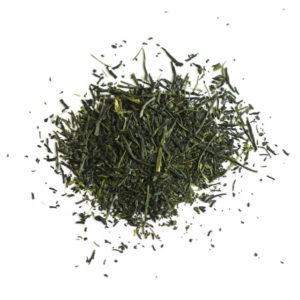
Minamikaori (みなみかおり) means “south aroma”. It refers to Miyazaki prefecture, which is where this cultivar was developed.
Its purpose is sencha production, but while researching online I noticed that it was also being used for black tea.
History of Minamikaori
In 1966 at the Miyazaki agricultural research institute, the Yabukita cultivar was crossed with Miya A11 (宮A-11).
Miya A11 is a cultivar resistant to cold weather and disease. It is a hybrid between CK-20 (a cultivar from China) and a famous Taiwanese cultivar named Chin-shin oolong (青心烏龍).
The best tea plant was selected two years later. It would take until 1988 for Minamikaori to be registered as Japanese tea cultivar #39.
Characteristics of Minamikaori
Minamikaori is easy to propagate and is a normal budding cultivar.
Its leaves are similar in size to Yabukita, but mature leaves are slightly thicker.
The leaves are ligher in color than Yabukita, have a little less luster and are also less serrated.
For the same area, it produces less buds than Yabukita. But since they weight more, it’s a slightly better yield.
It is strong against cold weather, and also against anthracnose and the gray blight.
In addition, Minamikaori receives a light damage from the Kanzawa spider mite.
As a sencha it has a high quality.
The processed tea leaves have a high valuation in terms of color. Once prepared, the wet leaves have a refreshing aroma that’s different from Yabukita.
Its taste has a slight bitterness and astringency, however.
While Minamikaori is available in the market, it’s far from being common.
